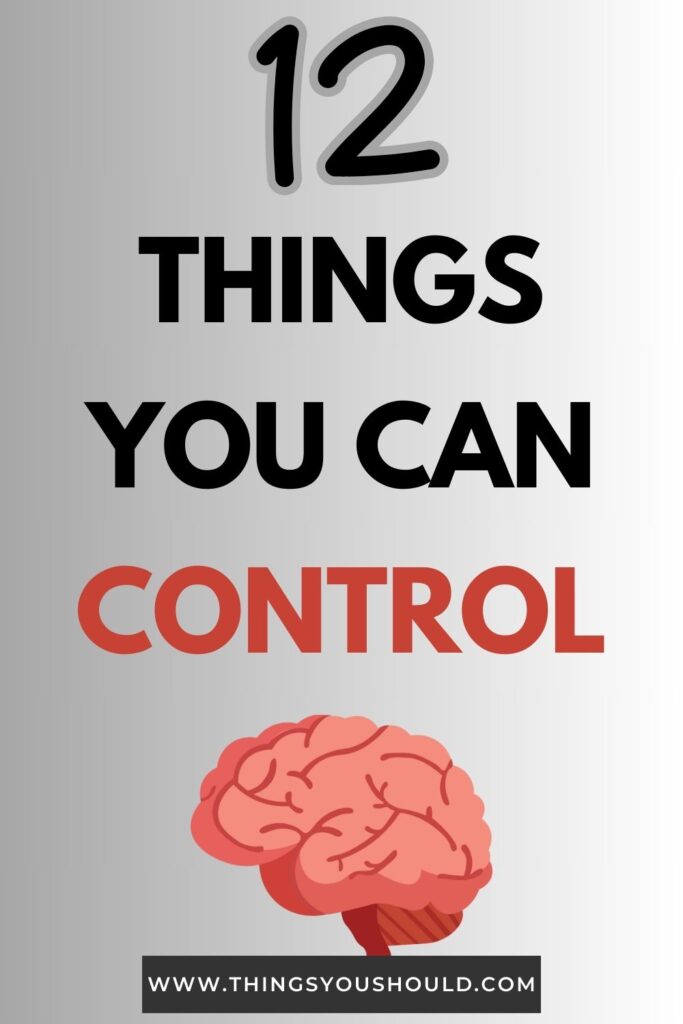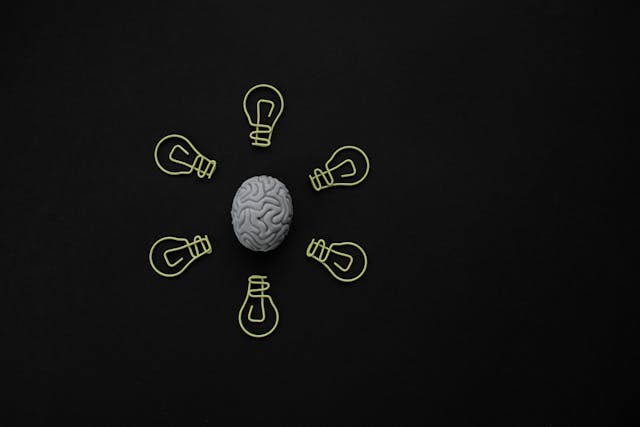While it’s easy to get overwhelmed by things that seem out of our control, focusing on Things You Can Control brings clarity and peace. Life combines the known and the unknown, the predictable and the chaotic. In this article, we will explore the areas of life that we influence and how managing them can increase our well-being.

Why Focusing on What You Can Control Matters
The Impact on Mental Health
When we focus on the things we can control, we build a strong foundation for mental health. By choosing our thoughts and actions, we protect ourselves from unnecessary stress and gain a sense of purpose.
The Role of Control in Reducing Stress
Stress often arises when we try to control things that we cannot control. Focusing on what is within our reach – our actions, mindsets and routines – can help us overcome anxiety and live more mindfully.
Understanding the Concept of Control
What Does ‘Control’ Really Mean?
Control doesn’t mean taking over everything around us, it’s about personal responsibility – knowing that even in an unpredictable world, we have the power to direct our inner environment.
Differentiating Between Controllable and Uncontrollable Factors
Recognizing the difference between controllable and uncontrollable factors helps prioritize where to direct energy. You can control your reactions but not the opinions of others. Mastering this difference reduces frustration and strengthens resilience.
Key Areas of Life You Can Control
1. Your Thoughts and Mindset
Your mind is your fortress. Developing a healthy mindset turns challenges into learning experiences and promotes growth.

2. Embracing Positive Thinking
Practicing positivity does not mean ignoring difficulties. It’s about reshaping how we see them – seeing obstacles as stepping stones rather than obstacles.
3. Practicing Gratitude Daily
Gratitude refocuses what we already lack, creating contentment and resilience. Keep a gratitude journal, noting three things you are grateful for each day.
4. Your Emotions and Reactions
While emotions arise naturally, how you respond to them is within your control. Taking responsibility for reactions promotes maturity and self-discipline.
5. Emotional Regulation Techniques
Techniques such as deep breathing, meditation, and pausing before reacting can help you control your emotions rather than being affected by them.
6. Learning the Art of Letting Go
Letting go means not clinging to results or resentments, freeing you to enjoy the present and respond thoughtfully rather than emotionally.
7. Your Habits and Routines
Habits determine the direction of your life. Positive habits create constructive routines that lead to constant growth.
8. Building Positive Habits Gradually
Forming habits takes time. Start small — whether it’s reading 10 minutes a day or exercising every morning. Consistency is the key.

9. Breaking Negative Habits
Identify the habits that are getting in your way. Replace them with creative alternatives, breaking down goals into manageable steps to stay on track.
10. Setting and Pursuing Goals
Setting goals helps direct your focus and efforts. Realistic, actionable goals keep you motivated without getting in the way.
11. Importance of Realistic Goal-Setting
Set achievable goals that align with your values and strengths. Unrealistic goals often lead to frustration and can hinder progress.
12. Steps to Set Actionable Goals
Define clear goals, break them down into smaller steps, and celebrate milestones along the way to maintain momentum.
Why You Can’t Control Other People
The Harm of Trying to Change Others
Attempts to control others create strain in relationships and lead to frustration. Recognizing that people have their own ways promotes healthy relationships.

The Freedom in Letting Others Be Themselves
When you allow others to be you, you free yourself from the burden of trying to fix or manage them. It promotes respect and mutual growth.
Practicing Self-Care as a Controlled Element
Self-care is the foundation of a balanced, fulfilling life. Taking responsibility for your own well-being improves all aspects of life.
Physical Health and Well-being
Physical health is in your control – through exercise, a balanced diet, and adequate rest, you maintain your body’s strength and flexibility.
Emotional and Mental Self-Care
Engage in activities that refresh your mind, such as reading, journaling, or spending time in nature. Mental health care makes life’s challenges more manageable.
How Accepting Uncontrollable Factors Empowers You
The Benefits of Accepting Life’s Unpredictability
Accepting that life is unpredictable can bring peace. Instead of resisting changes, embracing them allows for a flexible, adaptive approach.
The Peace of Mind in Acceptance
When we accept what we cannot change, we find inner peace. It becomes easier to focus on self-improvement and get rid of unnecessary worries.
Conclusion: Embracing a Life of Control and Letting Go
Life is a dance between what we can control and what we cannot. Adopting this balance promotes a sense of freedom, as we focus on shaping our thoughts, habits, and reactions, while letting go of what is beyond our control. Remember, the key to a fulfilling life lies in focusing on the things you can control, making each day a little brighter and more manageable.
FAQs
- What are the main things you can control in life?
You can control your thoughts, emotions, actions, habits, and how you respond to others. Practicing self-care and setting personal goals are also within your control.
- Why is it important to focus on things you can control?
Focusing on what you can control reduces stress, enhances well-being, and allows you to navigate life more calmly. It helps avoid frustration over factors outside your influence.
- How can you improve your control over emotions?
Emotional control comes from awareness, practice, and techniques like deep breathing, journaling, and meditation. Over time, these tools help you manage responses more effectively.
- What is the impact of letting go of control over others?
Letting go of controlling others improves relationships and boosts personal peace. It fosters respect, acceptance, and freedom within interpersonal dynamics.
- What’s the best way to start focusing on things you can control?
Start by identifying areas in your life where you have direct influence, like thoughts and daily routines. Gradually shift attention away from uncontrollable factors and invest in personal growth.